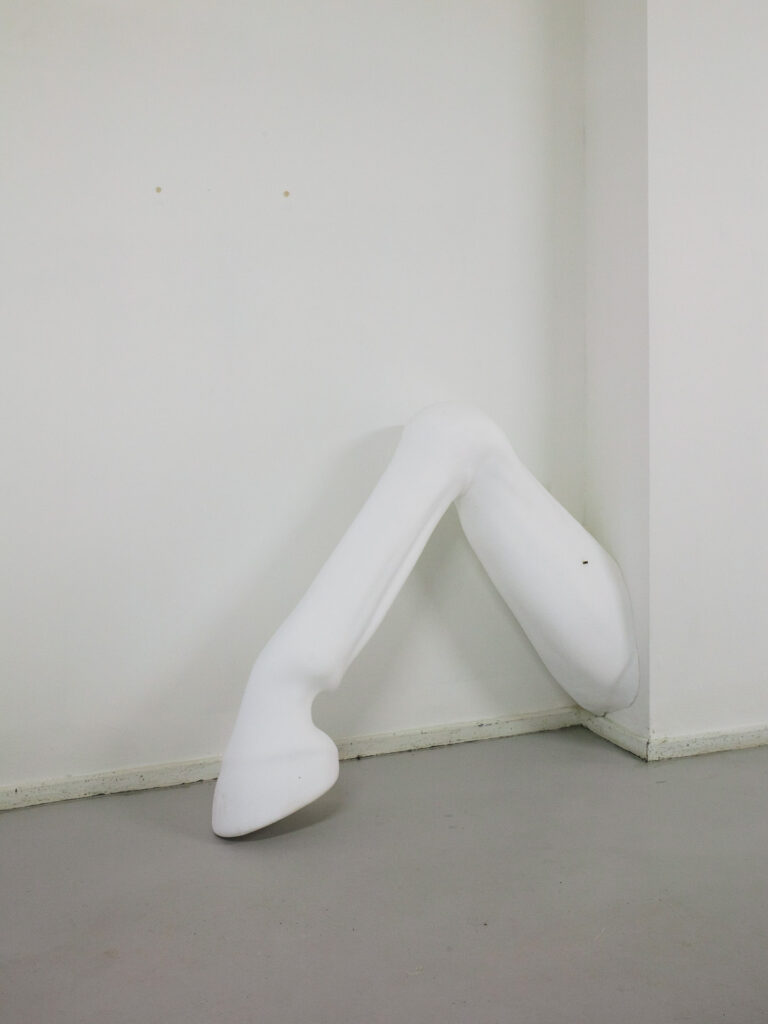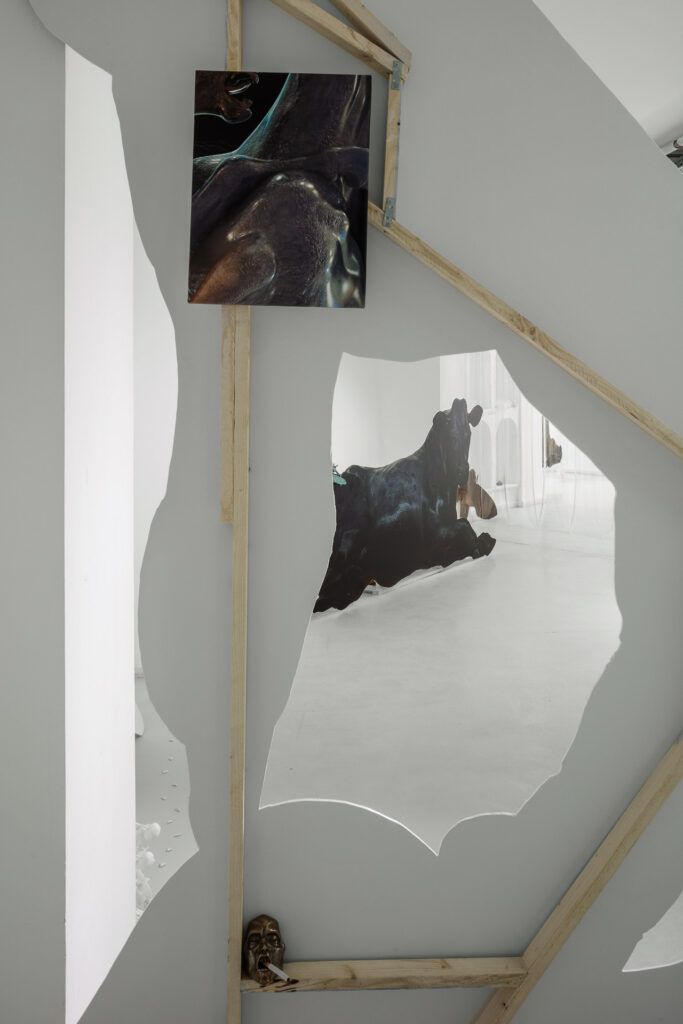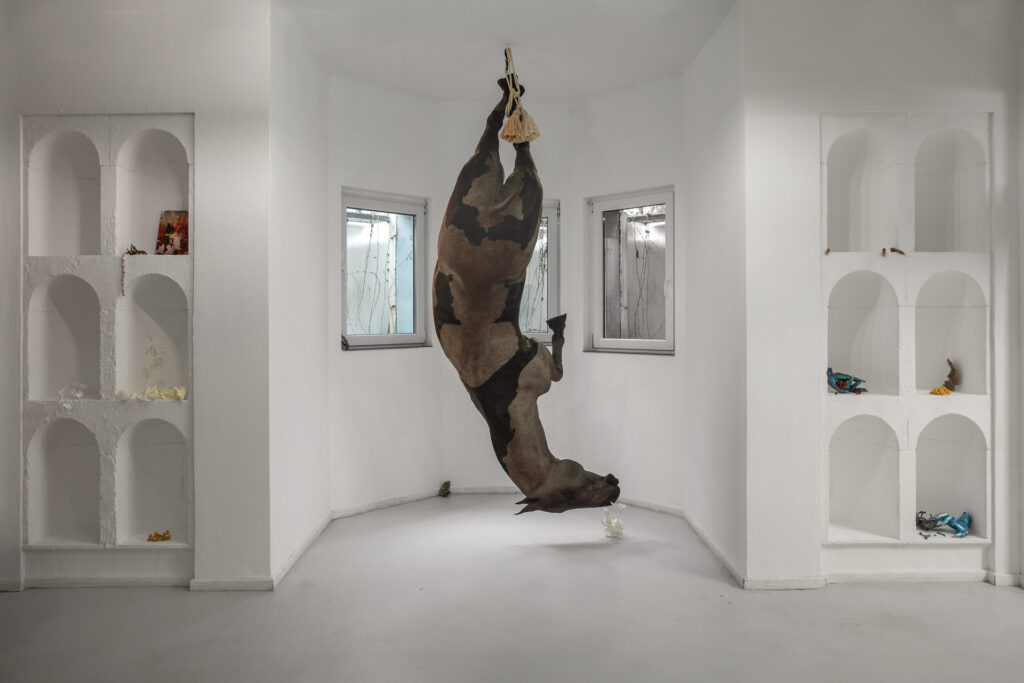Uncensored Lilac
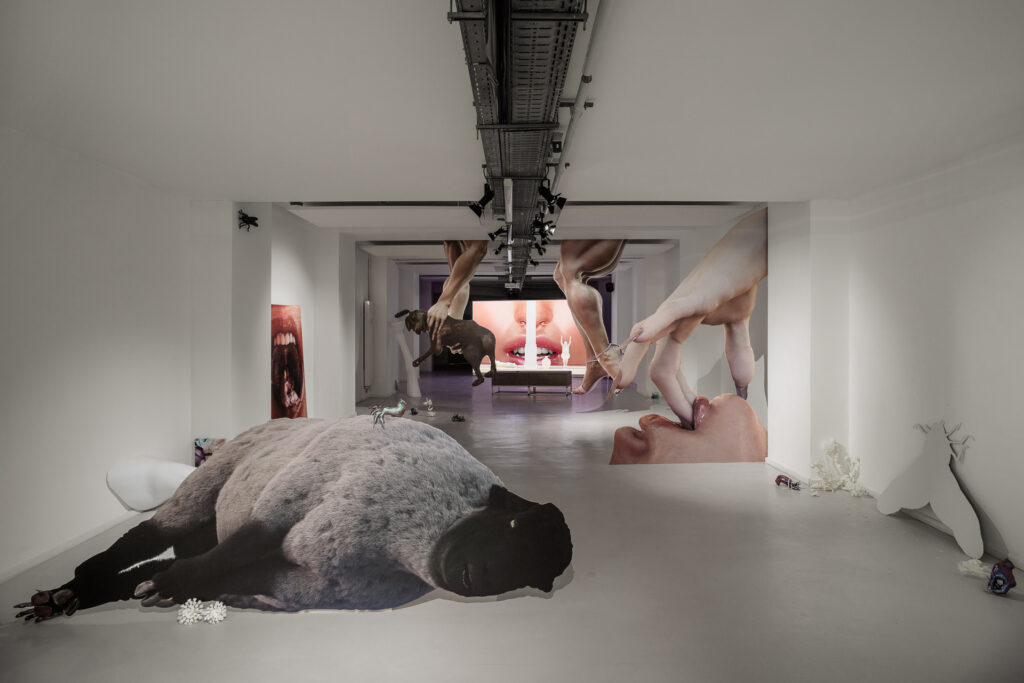
Commissioned for transmediale 2024, Uncensored Lilac is an exhibition by Bassam Issa Al-Sabah and Jennifer Mehigan. The exhibition is a result of their ongoing exchange and collaboration.
A group of goddesses and their assembly of familiars, pets, servants, and technologies are lounging. Separated from one another, they share a land but not a common ground. They have been invaded. They are pretty, hot, bothered, and bored. They are ready to destroy each other. They look deep into the camera and recite their deepest wishes, hopes, dreams, and fantasies. Meanwhile, temperatures are rising. They morph and grow and make their rage known. Quick to anger, their tempers rise with the heat.
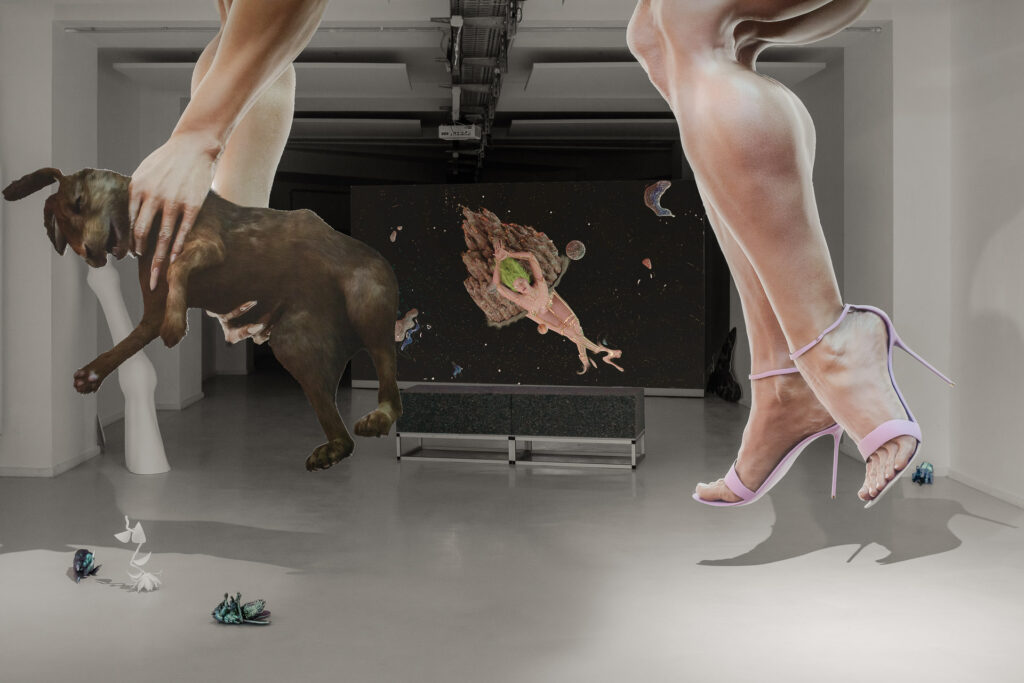
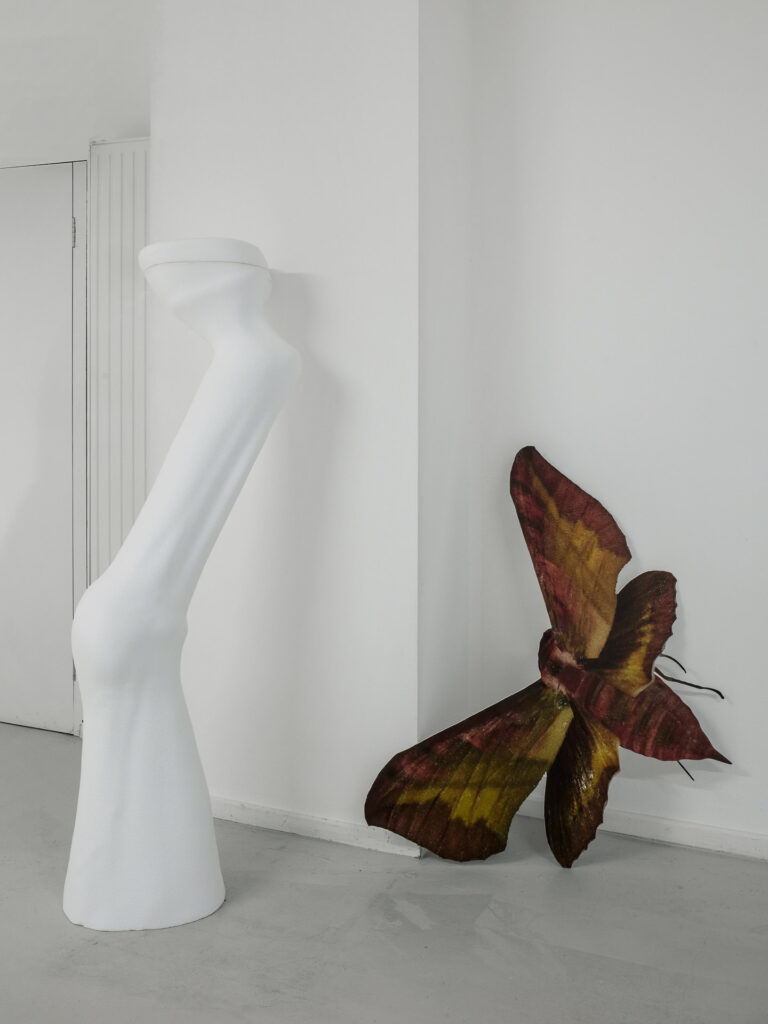
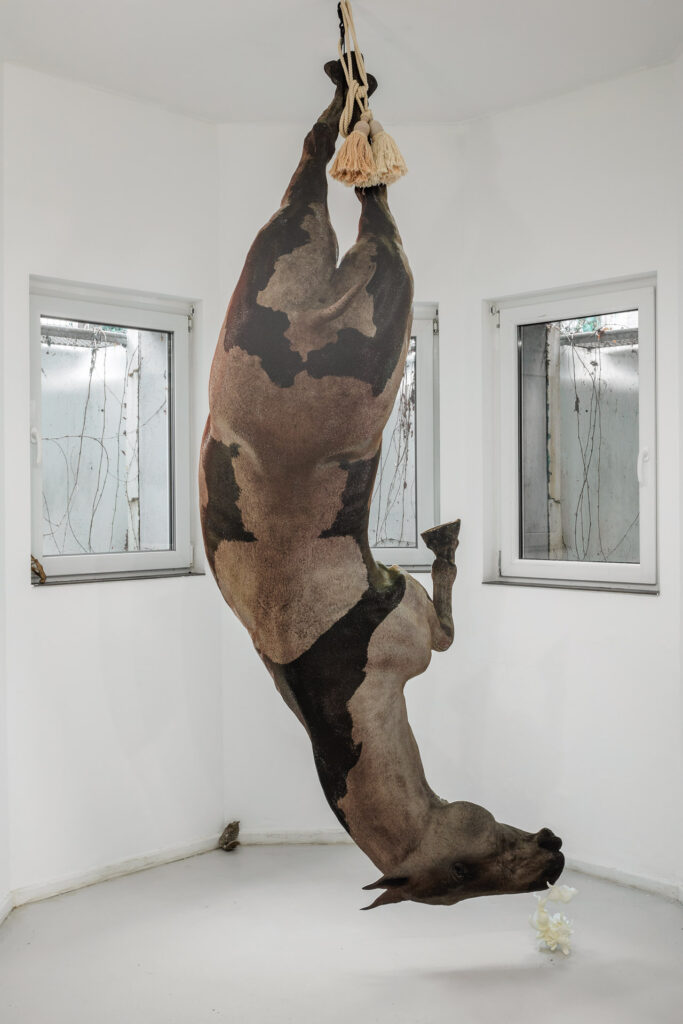
Uncensored Lilac is an exhibition by Bassam Issa Al-Sabah and Jennifer Mehigan that tells a story about revenge and desire. At the centre of the exhibition is a 30-minute film that follows a group of goddesses and their companions. Their land and ways of communication with each other have been destroyed by climate collapse, and as the temperature rises, strange forms of dissonant and dissident behaviour emerge between them. Set in a dreamlike hallucinatory landscape, the film features a series of monologues given by these mega-femme entities who have everything and nothing to say. They describe their hopes and desires, bicker, interact from a distance, and refuse to unite. In the cultivation of an economy where hotness equals power, this kind of global warming is no surprise – rising tempers and rising temperatures. Increasingly isolated from each other, they hold on tight to their apolitical, apathetic, consumer-driven dreams.
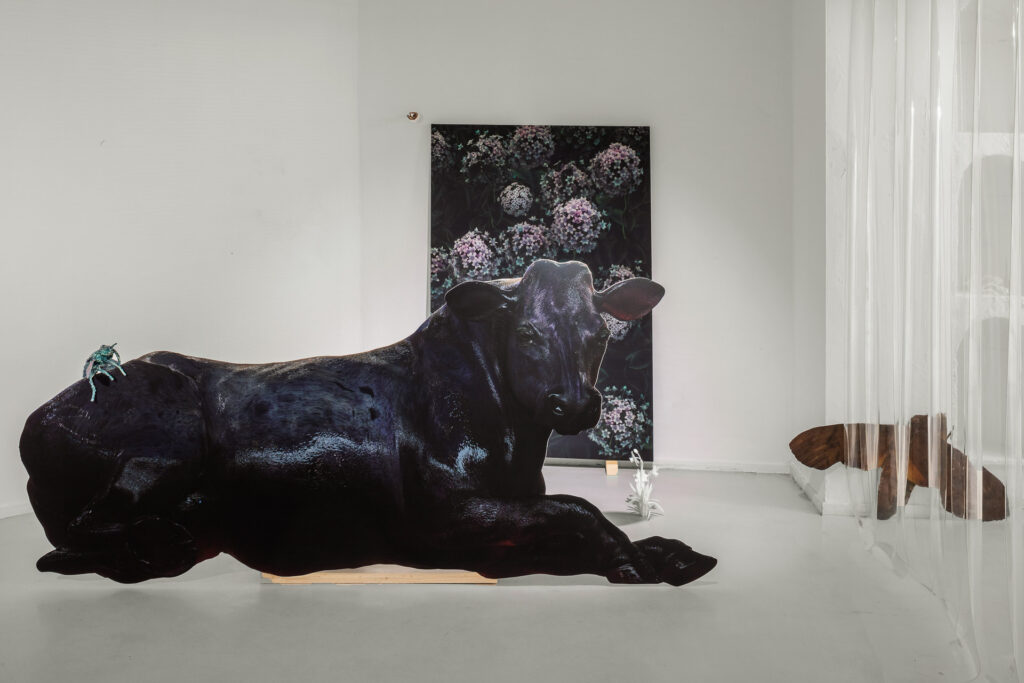
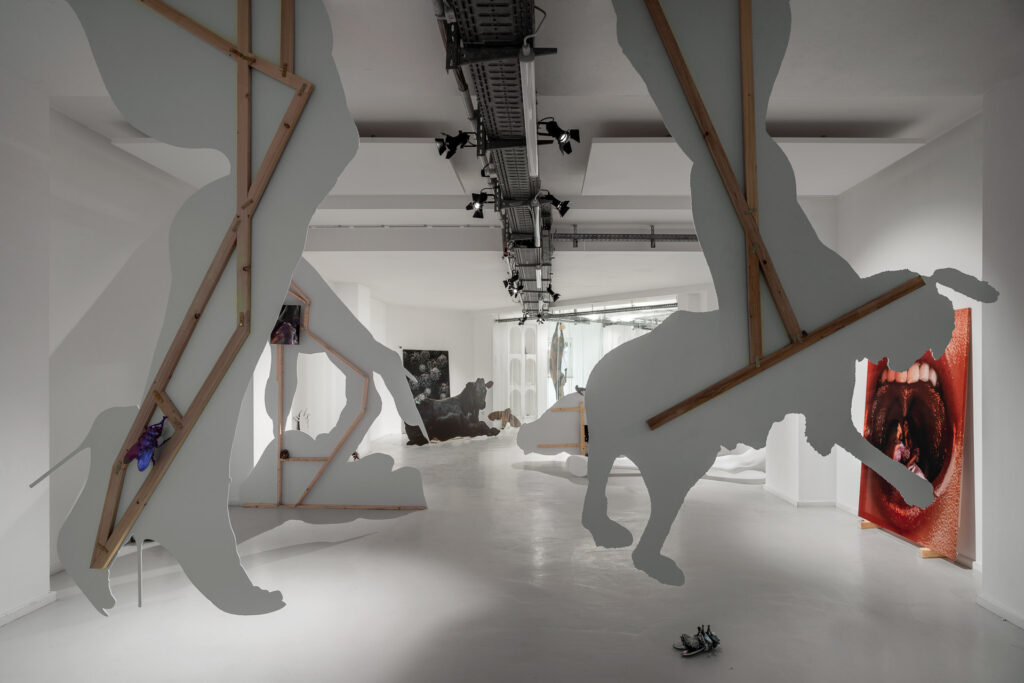
In the studio space, a series of 3D-printed sculptures, oversized cutouts, paintings, pearls, and flowers extend this world out from the screen. The brutality of these mega-femmes come to life: giant, veiny legs and a woolly sheep act as monuments disrupting the scale of the world built in the film and anchoring us to their climate-altered world. Contrasting the relationship between avatars and screens, and the feminine and the landscape – a common trope in feminist utopian literature – Bassam Issa Al-Sabah and Jennifer Mehigan question how we embody and are altered by climate collapse. Reflecting on the flatness of the screen, and their flattening of politics, they explore the impossibility and bureaucracy of being right in what can feel like the end of the world.
